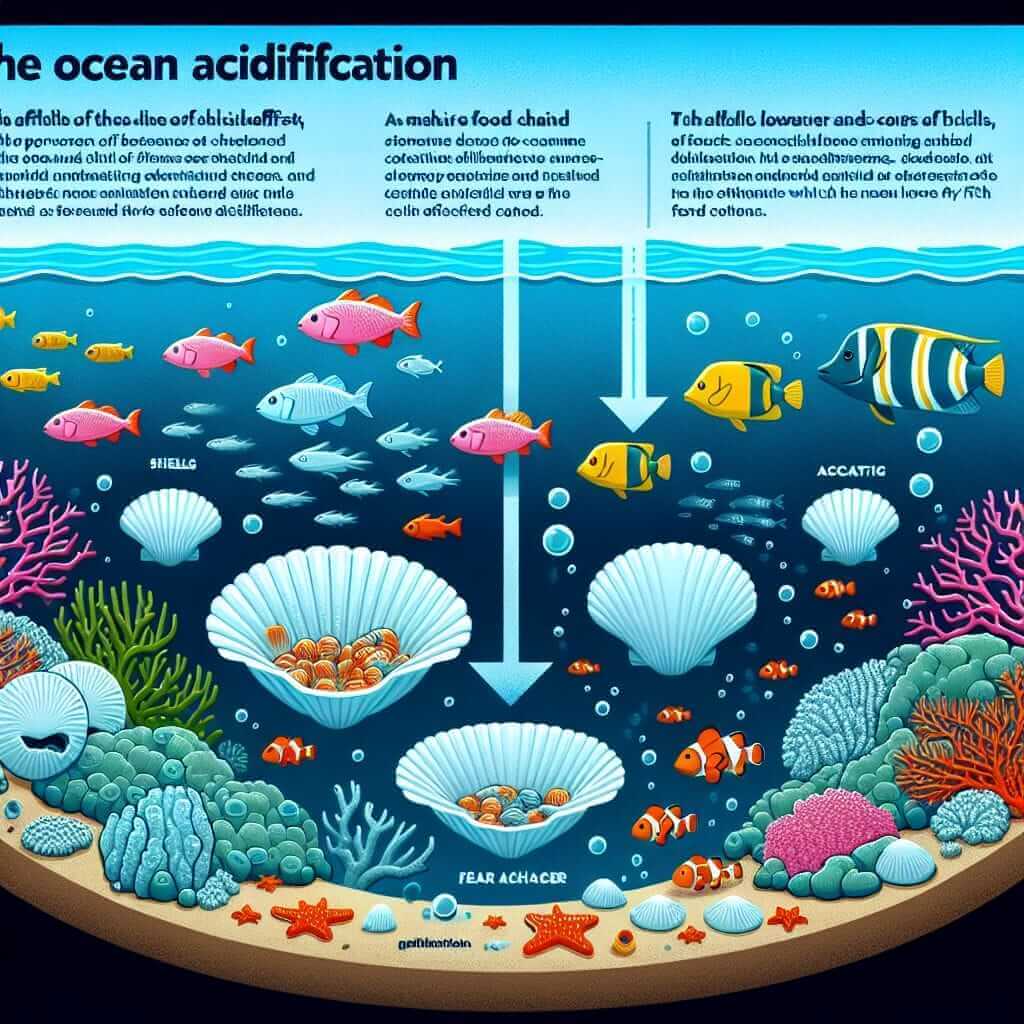The IELTS Reading section is designed to test your ability to understand and interpret written English. Over the years, environmental topics such as climate change and global fisheries have frequently appeared in the IELTS Reading exams, reflecting their growing importance and relevance. This article will provide a comprehensive reading practice passage based on the keyword “How does climate change affect global fisheries?” Alongside the passage, we will offer questions and answers to help you prepare effectively for your test.
Practice Reading Passage
How Does Climate Change Affect Global Fisheries?
Global fisheries, which contribute significantly to food security and the global economy, are experiencing profound changes due to climate change. Rising sea temperatures, ocean acidification, and shifting ocean currents are just a few of the ways that climate change impacts marine life. The distribution, abundance, and composition of fish populations are being altered, posing serious threats to fisheries worldwide.
One major effect of climate change on global fisheries is the alteration of fish habitats. Warmer sea temperatures can cause species to migrate towards cooler waters, often moving away from traditional fishing areas. For example, Atlantic cod, a species vital to Northern European fisheries, has been documented moving towards the Arctic. This migration can disrupt local ecosystems and fishing economies that rely on these specific fish populations.
In addition, ocean acidification, driven by increased levels of carbon dioxide, affects calcifying organisms such as shellfish and coral reefs. These organisms form the basis of many marine food webs. A decline in their populations can have cascading effects on the entire marine ecosystem, ultimately reducing the number of harvestable fish populations.

Shifting ocean currents and climate patterns can also impact the reproductive cycles of fish. Many species rely on specific ocean conditions to spawn. Altered current patterns can lead to mismatches in the timing of breeding and the availability of food for larvae, decreasing the survival rate of young fish.
Ultimately, climate change threatens not only biodiversity but also the livelihoods of millions of people who depend on fishing. Addressing these challenges requires international cooperation and sustainable fishing practices to ensure the resilience of global fisheries.
Questions
Multiple Choice
-
What is a consequence of rising sea temperatures on fish populations?
- A) Fish species move towards warmer waters
- B) Fish species move towards colder waters
- C) Fish species remain in their traditional areas
- D) Fish species move towards freshwater bodies
-
What is a major threat posed by ocean acidification?
- A) Increased fish populations
- B) Improved coral reef health
- C) Decline in calcifying organisms
- D) Enhanced fishing yields
Identifying Information (True/False/Not Given)
- Changes in ocean currents can affect the reproductive cycles of some fish species.
- Climate change has a negligible effect on global fisheries.
Matching Headings
- Match the following headings with the correct paragraphs:
- A) Impact on Fish Habitats
- B) Effect on Marine Ecosystems
- C) Socio-economic Implications of Climate Change on Fisheries
Short-answer Questions
- What specific species is mentioned as moving towards the Arctic due to warmer temperatures?
Diagram Label Completion
- Label the diagram showing the effects of increased carbon dioxide on marine life:
[Diagram illustrating the reduction in shellfish populations and impacts on marine food webs]
Answer Key
Multiple Choice
- B) Fish species move towards colder waters
- C) Decline in calcifying organisms
Identifying Information
- True
- False
Matching Headings
-
- Paragraph 2: A) Impact on Fish Habitats
- Paragraph 3: B) Effect on Marine Ecosystems
- Paragraph 6: C) Socio-economic Implications of Climate Change on Fisheries
Short-answer Questions
- Atlantic cod
Diagram Label Completion
- Shellfish: Forms basis of marine food webs
Coral Reefs: Affected by ocean acidification
Fish Populations: Reduced due to declining food sources
Common Mistakes and Tips
Errors to Avoid
- Misinterpreting Questions: Always read the questions carefully. For instance, True/False/Not Given questions require you to determine whether the statement is explicitly stated, implied, or absent in the passage.
- Skimming Too Quickly: While skimming is a useful technique, ensure you do not miss key details that can help in answering questions accurately.
- Ignoring Context: Pay attention to the context of sentences and paragraphs to understand the exact meaning, which is crucial for many question types, especially Matching Headings and Sentence Completion.
Vocabulary
- Calcifying (adj.): Involving the accumulation of calcium salts in body tissues.
- Resilience (noun): The ability to recover quickly from difficulties.
- Ecosystem (noun): A biological community of interacting organisms and their physical environment.
Grammar
- Present Continuous for Trends: Use the present continuous tense to describe ongoing trends (e.g., “species are moving towards cooler waters”).
- Conditional Sentences: Use conditional sentences to describe hypothetical situations related to climate change (e.g., “If ocean acidification increases, shellfish populations will decline”).
Advice for Scoring High in IELTS Reading
- Practice Regularly: Consistent practice helps you become familiar with the passage structures and question types.
- Enhance Vocabulary: Regularly learn and revise new words, especially those related to common IELTS themes like environment, technology, and health.
- Time Management: During your practice sessions, time yourself to improve your reading speed and accuracy.
- Review Mistakes: After each practice test, review your mistakes to understand where you went wrong and how you can improve.
With diligent practice and a thorough understanding of reading strategies, you will be well-prepared to excel in the IELTS Reading section.